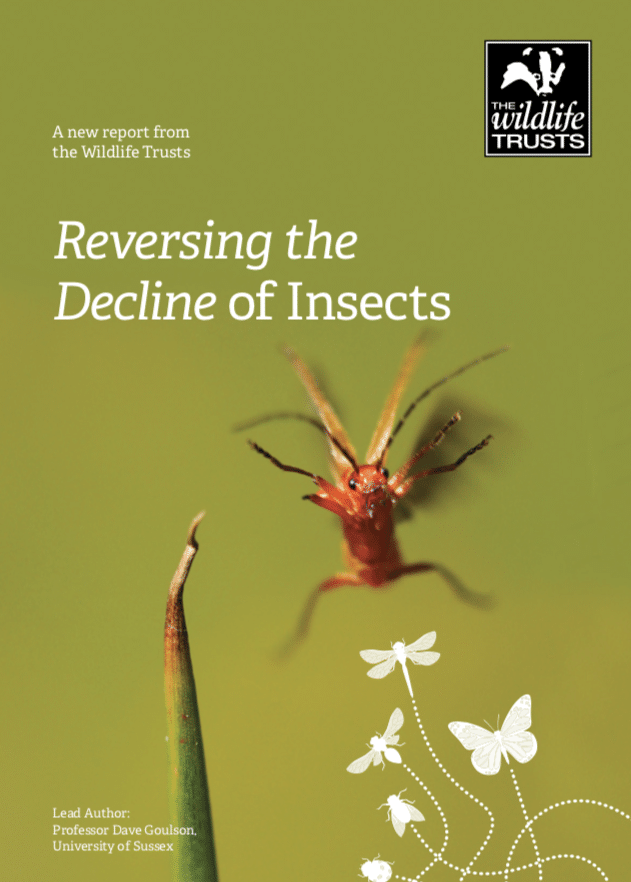A new report by The Wildlife Trusts – Reversing the decline of insects – is calling on the whole of society to champion insects and for the UK Government to implement measures aimed at boosting their populations.
Citing examples of farmers, communities, councils and charities that are successfully boosting insect numbers, The Wildlife Trusts’ report stresses that the future of insects hangs in the balance as trade deals threaten to increase the use of harmful pesticides, adding that the progression of the Agriculture Bill through Parliament presents ‘a unique opportunity’ to establish insect-friendly farming methods.
The Wildlife Trusts is calling on Government to reverse the decline of insects by implementing an ambitious pesticide reduction target at least as rigorous as the EU’s goal to reduce the overall use of chemical pesticides by 50% by 2030. It also wants a commitment that pesticide standards won’t be lowered through future trade deals – voicing concern about the UK’s current ‘hazard-based approach to pesticide authorizations’ – and asks for support for farmers to adopt agroecological practices including integrated pest management.
Current trade deals threaten to make a bad situation worse. It’s up to the Government to ensure we maintain our current environmental standards, not let them slip and jeopardise the wildlife we have left
The organization believes that a reversal in insect decline is feasible with the creation of a network of nature-rich areas covering at least 30% of the UK along with legally-binding and strictly enforced nature recovery targets, and says local councils should prioritize green recovery, introduce more nature-rich areas and ban pesticides in cities, towns and parishes.
“In my lifetime, 41% of wildlife species in UK have suffered strong or moderate decreases in their numbers and insects have suffered most,” says Craig Bennett, chief executive of The Wildlife Trusts. “This has had a huge effect on the rest of the natural world. The vital role that insects perform is undermined and everything that depends on them suffers, from hedgehogs to nightingales, wildflowers to wetlands.
“Current trade deals threaten to make a bad situation worse. It’s up to the Government to ensure we maintain our current environmental standards, not let them slip and jeopardise the wildlife we have left. The Agriculture Bill is a golden opportunity to set high standards in law and make sure insect-friendly farming practices are rewarded.
“We want to see an ambitious pesticide reduction target and at least 30% of land being managed for nature so that insects can become abundant once more. We’re calling on everyone to take action for insects and become an insect champion.”
Commenting on the report, Gareth Morgan head of farming policy at the Soil Association said: “This report provides further evidence for the devastating contribution of pesticides to insect decline. UK Government must support a transition away from reliance on toxic chemicals in UK farming, towards tried and tested systems that work with nature to tackle pests instead. Modelling by French research group IDDRI, suggests a transition to agroecology across Europe is possible; this would virtually eliminate pesticide use whilst still feeding the growing population a healthy, nutritious diet.”
The Reversing the decline of insects report can be downloaded here.





